
Mining & Trade News
Malawi Online News
Top Stories
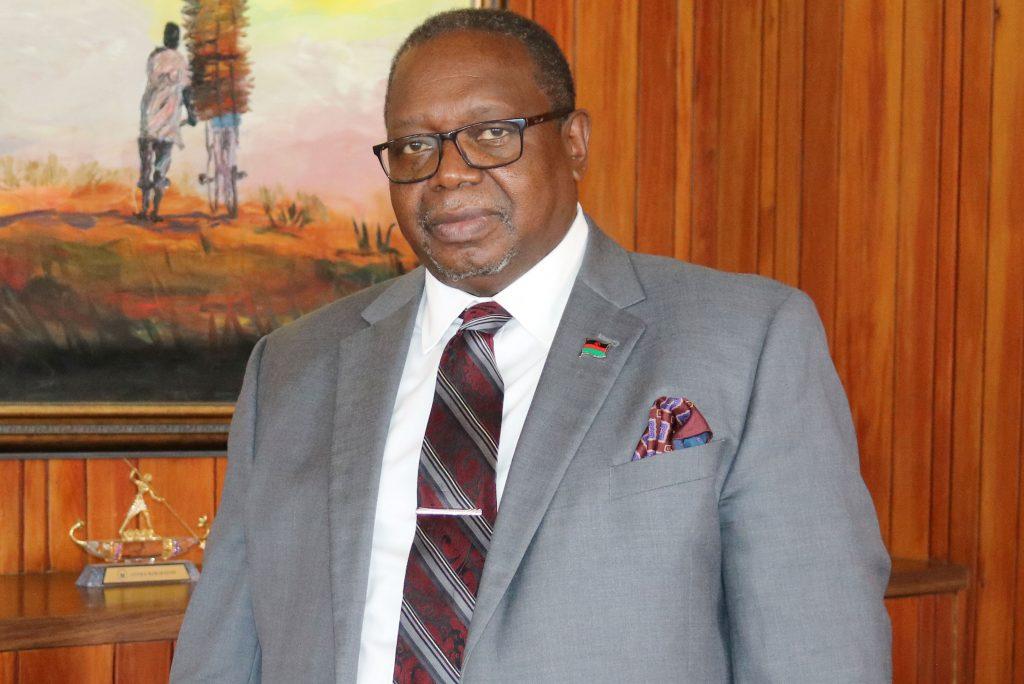
Energy
High fuel prices pushes inflation upNovember 04, 2021 / Bester Kayaye
The Reserve Bank of Malawi’s Monetary Policy Committee (MPC) has projected that the rise in fuel prices on the domestic market will trigger a corresponding increase in the rate of inflation in 2022.
It is anticipated that the fourth quarter of 2021 will see the inflation rate shoot to 8.9percent from 8.2percent as a result of the fuel price adjustment as well as the rise in maize prices, persistent disruptions to global supply chains among other factors.
According to a statement signed by MPC chairperson Dr. Wilson Banda, the inflation rate averaged 8.7 percent in the third quarter of 2021 against a projection of 8.8 percent and lower than the 9.1 percent recorded in 2021.
“The decrease is attributed to moderation of the food inflation rate as non-food inflation rate increased marginally. Specifically, food inflation rate averaged 10.3 percent in the third quarter of 2021 compared to 11.1 percent the second quarter of 2021,” the statement says
“On the other hand, non-food inflation rate averaged 7.2 percent in the third quarter of 2021, from 7.1 percent in the previous quarter,” Banda says in the statement adding that headline inflation rate is now projected to average 9.1 percent in 2021, representing an upward revision of 0.3 percentage points from the third quarter of 2021.
He also explained that Malawi’s economy is rearing from the developments in international oil prices as crude oil prices rose to an average of US$73.0 per barrel in the third quarter of 2021 from US$68.6 per barrel in the second quarter.
Banda noted that the increase was propelled by the growing demand for the commodity following an economic recovery in the northern hemisphere and the global energy crunch.
“Brent crude oil prices are anticipated to remain around the current levels for the remainder of 2021 but are expected to decline to an annual average of US$66 per barrel in anticipation that growth in production from OPEC+, U.S. tight oil, and other non-OPEC countries will outpace consumption,” says the statement Meanwhile, the MPC has maintained the Policy Rate at 12.0 percent while the Lombard rate is at 0.2 percent points above the Policy Rate. The Liquidity Reserve Requirement (LRR) ratio on both local currency and foreign currency deposits remain at 3.75 percent in a bid to minimize policy trade-off and to better manage inflationary pressures as well as to support economic recovery

Energy
Completion period for power interconnection project shiftedOctober 21, 2021 / Noel Mkwaila
The completion period for the implementation of the Malawi-Mozambique Interconnection project has been shifted from the initial 2022 deadline to October 2023, Alex Kaitane, the Senior Project Manager at Electricity Supply Commission (ESCOM) has told the press.
Kataine attributed the change to the Covid-19 pandemic, whose preventative restriction measures to contain the disease prohibited foreign travels that would have facilitated project revision meetings between the two countries.
“During the preparatory stage, we used to conduct meetings to plan its implementation, but Covid-19 interrupted the process, a development which forced us to embrace virtual meeting, until this too, met its own challenges,” he said.
He explained that among other plans to sustain the project and ensure that it remains on track even when the coronavirus resurfaces, ESCOM intends to involve local contractors to implement it.
The aim of the Malawi-Mozambique Interconnection Project is to incorporate Malawi into the Southern African Power (SAPP) which provides a platform for trading of electricity within the SADC Member states.
“The project will address the country’s frequent power outages resulting from high demand for electricity as it will be importing 50 Megawatts (MW) from Mozambique to boost its supply,” said Kataine.
It is planned that 218 kilometers long power lines will be constructed from Mozambique to Malawi with 76 kilometers lined in Malawi and 142 kilometers in Mozambique.
The US$127 million has seen the World Bank committing US$15 million to the project while the European Union supports it with 20 million Euros. Malawi as a beneficiary country has contributed US$2.5 million.
Reports indicate that the feasibility study for the project as well as environmental impact Assessment including Resettlement Policy have all been completed while implementation contracts have also been awarded.

Energy
MERA targets 3% LPG usage increase by 2023October 04, 2021 / Wahard Betha
The Malawi Energy Regulatory Authority (MERA) says it has embarked on a campaign of promoting alternative sources of energy including Liquefied Petroleum Gas (LPG) and Biogas with an intention to scale up LPG usage in the country to 3% by 2023.
MERA Public Relations Officer Fitina Khonje told Mining & Trade Review that the regulatory body is promoting the alternative sources as they are tried and tested cleaner, convenient and environmentally friendly alternative sources of energy.
Khonje said the efforts are meant to discourage use of unsustainable and polluting sources of energy.
Khonje said: “We intend to stimulate LPG usage to 3% by 2023. We are noting growing interest in LPG and we know this target is achievable.
“When consumers appreciate and experience the positive attributes of gas and accessibility is enhanced, LPG will be an automatic choice just as it is in many countries.”
“MERA is not working in isolation on this drive. We are supporting the implementation of the Energy Policy and there is high government and other stakeholder interest to push up household and commercial usage of LPG.”
Khonje further said there is huge hope for the promotion of LPG to be successful following various efforts by both MERA and the government to ensure that LPG is affordable and accessible in the country.
She said apart from the introduction of zero rated value added tax on LPG since October 2019, MERA has reduced licence fees and technical regulations for LPG outlets.
According to Khonje, MERA believes that incentives being rendered to LPG operators can also be passed on to customers to encourage consumption.
Khonje said: “In addition to this, more operators in the LPG sector will push down prices through economies of scale and will lead to wider distribution networks and accessibility.”
“We have also relaxed licensing conditions in order to attract more players including gas importers and gas retailers.”
“We will be holding information sessions on Gas Retailing in few weeks’ time and we encourage those who are interested to register with MERA to attend.”
Khonje also disclosed that MERA is currently lobbying Government through the Ministry of Finance to consider removing duties and VAT on LPG accessories and appliances.
However, commenting on the safety handling and usage of gas, Khonje lamented safety risk perceptions to have contributed towards the low uptake of LPG in the country.
Khonje said MERA believes that increased consumer awareness coupled with regulatory monitoring and enforcement of standards will facilitate understanding and adoption of safe practices.
According to Khonje, MERA has a dedicated team to ensure LPG safety standards are being upheld.
She said MERA is also conducting routine inspections of all LPG outlets and that required corrections are followed up whereby LPG retailers are required to give safety trainings to first time users.
Khonje added that the regulatory body is also disseminating Information, Education and Communication (IEC) materials on safety and proper LPG usage.
Meanwhile, apart from the LPG and biogas, the regulator is receiving encouraging reports on the uptake of solar energy in the country.
Khonje however said, though the country’s adoption rate for solar energy is encouraging, there is still more to be done to create awareness on standards, encourage usage of MERA licensed installers and encourage increased usage at commercial and institutional level.
As part of their mandate, MERA is entitled to facilitate increased access to energy supplies; promotion of energy efficiency and energy savings; and promotion of consumer awareness and education on energy issues.

Energy
Malawi Parliamentary Committee attacks regulator for interfering with fuel procurement processMay 28, 2021 / Wahard Betha
Malawi’s Parliamentary Committee on Natural Resources and Climate Change (NRCC) has expressed concerned on how Malawi Energy Regulatory Authority (MERA) has handled the fuel procurement process saying it could lead to fuel shortage.
MERA declined to approve National Oil Company of Malawi’s (NOCMA) 2021 to 2022 application to award contracts to suppliers of fuel by the names of Independent Petroleum Group (IPG) and Lake Oil Limited saying they were concerned with the premiums stipulated under NOCMA’s Delivered Duty Unpaid (DDU) which in MERA’s view were not competitive and not transparent.
But reporting to the General Assembly following consultative meetings it conducted with MERA, NOCMA and other stakeholders, NRCC committee Chairperson Werani Chilenga told the house that MERA’s action on the matter indicated that as regulators they intended to prolong procurement period.
Chilenga said: “The Committee, however, is concerned that MERA’s action shows that it wants to prolong the delays in the procurement process of fuel.”
“The Committee is, therefore, concerned that such acts are a recipe for a possible fuel crisis in the country which could translate that government has failed.”
“The Committee is therefore concerned that MERA and some officials who are benefiting in the current saga may stir problems for the government.”
Considering that the fuel procurement process has taken over eight months instead of four months, and based on the approvals from Public Procurement and Disposal of Assets (PPDA), Anti-Corruption Bureau (ACB), Government Contracting Unit and Ministry of Justice, Chilenga said the committee has recommended NOCMA to proceed with necessary administrative arrangements within the law to proceed with the procurement of fuel.
Understanding that Malawian Transporters have been suffering due to the brokerage system that is not supported by any law, the committee has also recommended that Malawian Transporters should be allowed and supported by oil companies to operate without the brokerage system.
Chilenga also said the committee has also directed MERA to be operating as a regulatory body and follow the law and not meddle in the procurement process.
“That due to the damage caused by MERA for the past eight months in delaying the fuel procurement process, the President should consider dissolving the MERA Board; and that the Anti-Corruption Bureau should investigate the claims already submitted by NOCMA on the November 6, 2020 as soon as possible,” Chilenga said.
On November 26th, 2020 NOCMA submitted to the Anti-Corruption Bureau reporting all authorities that had a hand to influence the fuel procurement process.
Meanwhile, 100 percent of NOCMA’s transport business under DDU is given to local transporters on Beira Route.
NOCMA’s 2021 arrangement which was supposed to be implemented in March, 2021, will see 87 percent of NOCMA business on transportation for Beiraand Dar es Salaam given to Malawian Transporters. The oil company uses DDU to ensure security of fuel supply in the country even when there is a financial challenge for the company as NOCMA still procures and only takes responsibility of the product at a later stage when the product is in its reserves.

Energy
Rak Gas terminates Malawi oil exploration ventureMay 21, 2021 / Wahard Betha
UAE oil exploration firm Rak Gas LLC, which held exploration licenses for Blocks 4 and 5, has terminated its oil exploration activities in Malawi.
Rak Gas has become the last multinational oil search firm to pull out of Malawi following another Asian firm Pacific Oil and Gas (Block 6), South Africa’s Energy for Africa (Block 1), and recently Hamra Oil (Blocks 2 and 3).
Country Manager for Rak Gas Martin Kansichi Banda confirmed to Mining & Trade Review that just like Hamra Oil, Rak Gas has notified the Ministry of Mining that it is pulling out of Malawi because it is difficult to mobilise equipment and human resource for oil exploration in Malawi due to travel restrictions that countries are enforcing to fight the coronavirus (Covid-19) pandemic.
“Oil exploration programmes demand that we mobilise equipment and experts from overseas and this is difficult due to boarder restrictions countries are enforcing to fight Covid-19,” said Banda.
He said currently the Rak Gas Malawi office is settling all its taxation obligations to wind up activities with a clean book.
Commenting on the development, Chairperson for Natural Resources Justice Network (NRJN) Kossam Munthali said the relinquishment of the licenses by the oil and gas companies may not be related to Covid-19 but that as the country, Malawi is not ready in that direction in terms of issues to do with legislative environment.
Munthali said the country might be lacking direction in the oil and gas sector due to the legislative framework which is very outdated.
He said: “You may recall; these are the same companies that signed Petroleum Sharing Agreements less than a week to elections in 2012 and as Civil Society Organizations (CSOs) we were very shocked in terms of timing.”
“So this have told us that what they wanted is unachievable. They are only sending a signal to say we were not ready as a country.”
“I also hope wherever they go they will not speak bad of this country. If they were frustrated, then the government needs to do some setting and see how we can move.”
Munthali stressed that the country requires serious investors that can express demonstrative investment to sustainably exploit the minerals for the benefit of Malawians and not only for their own selfish course.
He also in order to attract the right investors, Malawi needs proper legislative architecture which is conducive not only to investors but also the people of the country.
Munthali said: “Petroleum Exploration and Production Act that we are using today is so archaic and dirty and is not speaking to the current practices.”
“The 1983 paper is a long overdue, we just need to quickly to go back to the drawing board.”
“This should be a wakeup call to the government to expedite review of the legislative framework.”
He also said though the country might not have serious investors for oil and gas, the upstream petroleum industry still be there and still belong to the nation.
He said: “Let me also remind the government that they need to provide us with figures on how much these companies have been contributing to the government through Petroleum Training Funds.”
“We need to know how we have managed to utilize these funds.”
Munthali said the last time he checked the records the companies were paying US$50,000 per block every year to the Malawi Government.
Coordinator for Chamber of Mines and Energy Grain Malunga commented that though the oil and gas investors have closed offices in the country, Malawi is still holds prospects in the future of upstream petroleum.
Malunga also said when the Ministry of Mining grants relinquishment certificates to the companies, it will have an opportunity to re-demarcate the big blocks.
“New companies will come in under re-demarcated exploration blocks. Good for Malawi. The blocks were too big,” Malunga said.
Meanwhile, the Ministry of Mining is still in the process of assessing whether the companies have met all obligations with both the government and local communities to be granted cancellation certificate.
But Minister of Mining Rashid Gaffar told Mining & Trade Review in a recent interview that government has no intention to block the companies from relinquishing the licenses.
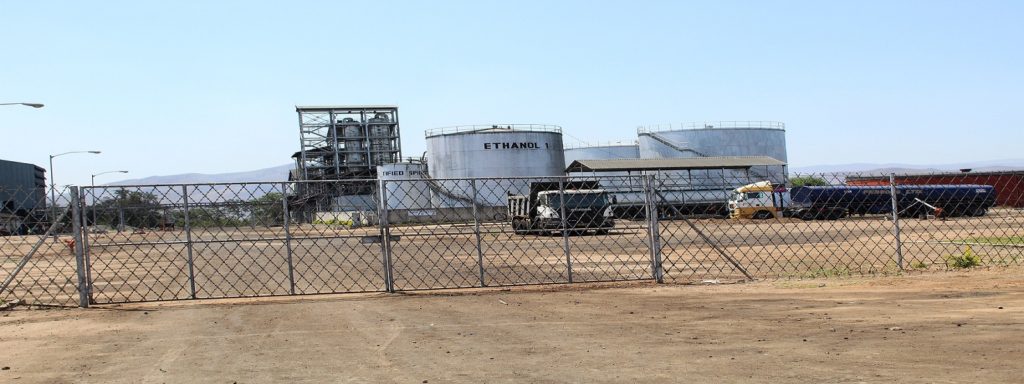
Energy
Energy, banking sectors buoy PCL growthMay 11, 2021 / Nelson Gonjani
Despite the prevalence of the coronavirus (Covid-19) pandemic, Malawi’s publicly listed conglomerate Press Corporation Limited (PCL) says it has registered a profit of K38.22-billion largely buoyed by the energy and financial sectors.
In a summary of audited results for the year ended December 31, 2020, signed by Group CEO George Partridge and Chairman Randson Mwandiwa, the Group says the energy sector comprising ethanol producers PressCane and Ethco delivered excellent results registering 116% growth in its profit after tax.
It says: “The performance was driven by the improved margins following the agreement of a new pricing model with the Malawi Energy Regulatory Authority (MERA).”
“Results were further buoyed by an upside from the production of hand sanitizers, a new product line, in the wake of Covid-19 pandemic, supported by the availability of additional feedstock carried over from the previous year.”
In the financial sector, PCL subsidiary National Bank of Malawi delivered strong results with a 31% growth in its profit after tax. The results were driven by a 17% growth in non-interest income and a 27% and 6% growth in customer deposits and the loan book respectively.
‘’The Bank’s efforts to improve the quality of the loan book saw a 45% reduction in net impairment losses. Going forward, the focus is to reduce the level of Non-performing Loans to be within the bank’s risk appetite,’’ state Partridge and Mwandiwa.
However, poor performance of brewer Castel Malawi negatively affected the growth of the conglomerate with the Directors concluding that it would be in the best interest of the Group to divest PCL’s remaining 20% stake in the company.
“Negotiations to that effect have now been concluded at a price of USD12 million, and the proceeds will be realized in 2021,’’ reads the statement.
In the consumer goods segment, PCL’s subsidiary PTC also continued to make losses mainly due to working capital constraints which is also undermining the implementation of the revised strategic plan.
‘’The board is considering several strategic options to improve the wellbeing of the company by inviting other new investors into the group,’’ the statement reads.
On the macroeconomic outlook, the statement reads that with the presence of Covid-19 vaccines, Directors of PCL envisage improved economic prospects for 2021 with GDP growth of 3.5% projected up from the 0.6% achieved in 2020.
It says: “Management is confident of delivering planned results. The prevailing foreign currency shortages and the related impact on exchange rates, however, remain a major downside risk. The significant increase in public debt poses another major challenge to economic growth.”
‘’The Group continues to search for profitable investment in the power segment. Negotiations for a Power Purchase Agreement are underway. Leveraging on its position in the market, the Group is well positioned for continued growth.’’
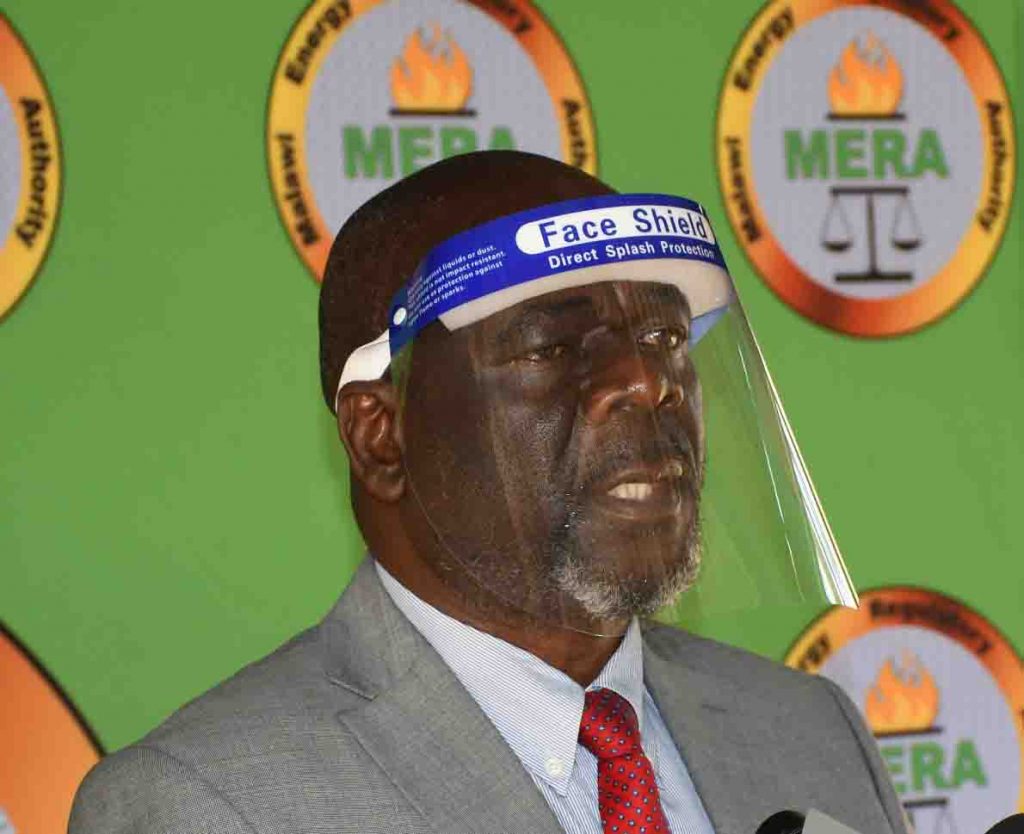
Energy
Solar IPPs to pump 121MW into national grid by DecemberApril 08, 2021 / Wahard Betha
Independent Power Producers (IPPs) pursuing solar power generation projects are expected to add about 121 MW to Malawi’s power grid by the end of this year, it was learnt in Parliament.
In a ministerial statement, Minister of Energy Newton Kambala informed the house that 60MW Salima project and 20MW Golomoti project both owned by JCM Matswani will be ready by April and December respectively while the 20MW Atlas Kanengo Project and the 21MW Phanes Energy Nkhotakota Project are expected to be functional by September.
“Malawi Government through Electricity Generation Company (EGENCO) is diversifying its energy sources and is pursuing installation of a solar PV plants in Salima, Nkhotakota, Lilongwe and Dedza which are at advanced procurement stage.”
“The Single Buyer, Power Market Limited, has approved the projects to be implemented. The projects will commence in the second half of the year 2021,” Kambala said.
Currently, EGENCO generates about 300MW of electricity from the installed electricity generation capacity of 508MW against projected demand of 719MW from the growing population and industry.
If the solar IPPs successfully commission the power plants, the country will raise the energy generation bar to 421MW by the end of this year.
Power Purchase Agreements (PPAs) have been negotiated with Power Market Limited as the licensed agent for buying power from all the producers.
The single buyer, independent as required, was still housed in Electricity Supply Corporation of Malawi (ESCOM) hence, the PPAs were signed by ESCOM as the single buyer at the time of amendment of the Electricity Act.
In the statement, Kambala also said despite opening up of the power sector to the IPPs, Government continues to participate in the market through the state owned company Electricity Generation Company (EGENCO).
Kambala said: “In order to sustain the power supply from the existing power plants, there are maintenance and rehabilitation to existing power plants.”
“The plants that have recently been rehabilitated include Tedzani 3 and currently work on the rehabilitation of Tedzani 1 and 2 is in progress. EGENCO has also rehabilitated Nkula A.”
“Apart from the maintenance and rehabilitation, new projects are being planned and executed. One such project is the 18MW hydro power plant at Tedzani which started in 2018 and is expected to finish in 2021 with funding from the Japanese Government.”
Though Malawi’s new energy policy advocates for diversification of sources of power, hydro power remains the most attractive source considering its least cost operating cost despite its high investment cost.
EGENCO is currently planning to construct the Mpatamanga Hydro Power Plant, expand the Wovwe Power Plant, and set up the Kammwamba Coal Fired Power Plant.
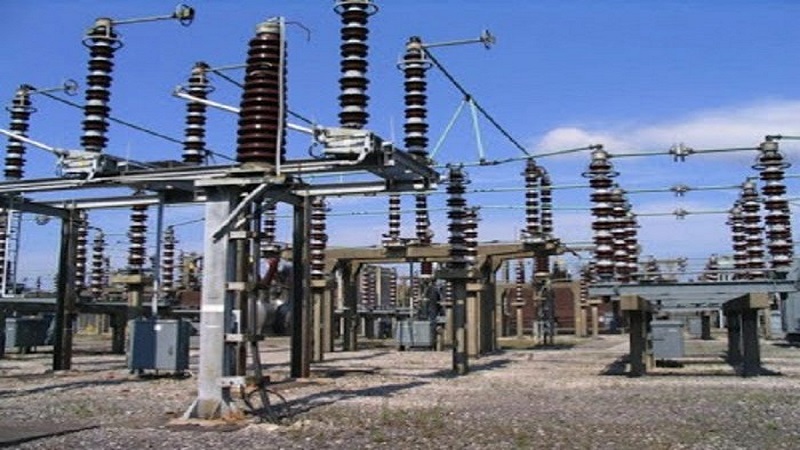
Energy
Malawi to have District Energy OfficersFebruary 02, 2021 / Noel Mkwaila
Malawi’s Ministry of Energy says it is making progress in preparations for recruitment of energy officers in all the country’s districts.
The officers will, among other things, be responsible for presiding over energy related activities at district level including the Malawi Rural Electrification Program (MAREP).
Spokesperson in the Ministry of Energy Saidi Banda has told us that so far the Ministry of Energy has put together concept notes for the implementation of the initiative.
“The concept note contains the roles that District Energy officers are expected to perform in the districts, the initiatives Budget, and roadmap of activities to be carried out in implementing this initiative, among other things,” Banda said.
According to Banda, currently the Ministry is engaging Ministry of Local Government and Rural Development and other stakeholders to agree on how this initiative will be implemented.
The Ministry has therefore assured the general public that everything will fully be implemented by the end of 2021/2022 financial year.
“Since the implementation of this initiative is a huge process, the Ministry is hopeful that the implementation of this initiative will be completed in all districts within the 2021/2022 financial year which also covers the period that our Minister indicated,” he said.
According to the Ministry, individuals who will be qualified as Energy Officers are those that hold at least a Bachelors Degree in Renewable Energy or related fields, coupled with extension work skills.
Meanwhile, Banda has disclosed that their Ministry is struggling to discharge its duties due to the complications resulting from Covid-19.
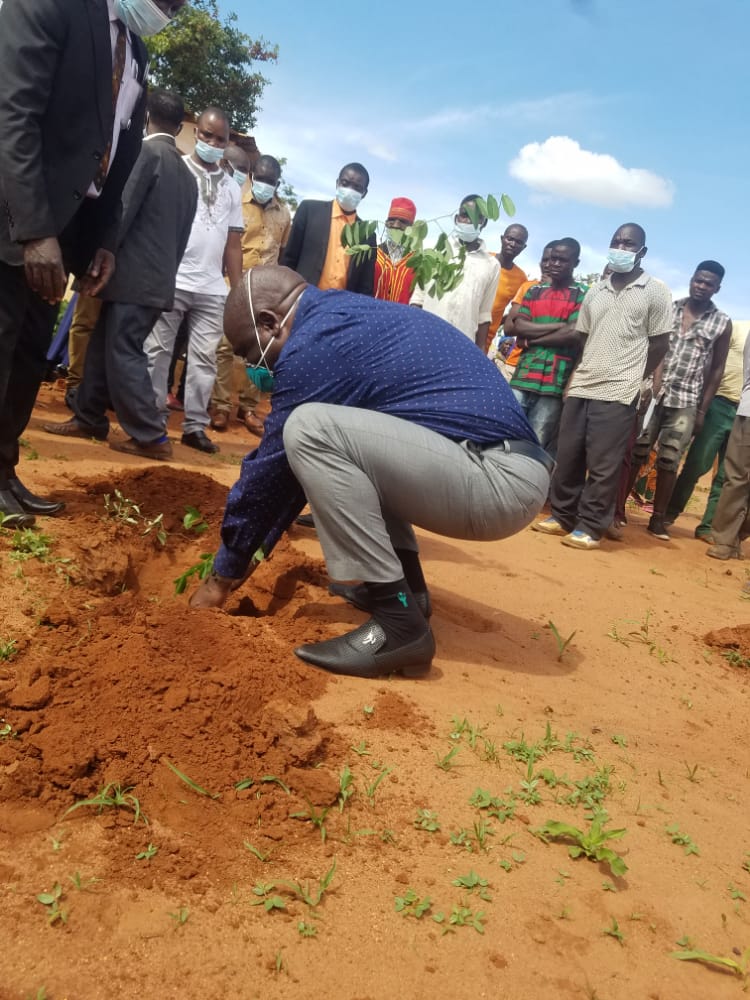
Energy
Energy minister leads Lilongwe residents in tree planting exerciseJanuary 07, 2021 / Wahard Betha
As the tree planting season is still underway, Minister of Energy Newton Kambala took part in a tree planting exercise at Chitukula Community Day Secondary School in Area 25, Lilongwe.
This year’s tree planting season runs from December 15, 2020 to April 15, 2021, according to Ministry of Forestry and Natural Resources.
Kambala said in an interview he is interested in tree regeneration understanding that trees play a major role in conservation of water which is the main source of energy in the country.
He said: “That is why I was interested to encourage people to plant trees. We have planned to plant about 500 trees today and this is the beginning. We want to be doing this every year.”
“We want to encourage people in the country to participate in planting trees as illustrated by our President that we need to replace trees lost through firewood and charcoal.”
The Minister urged the members of the community to take care of the trees and ensure that no trees are lost due to poor management.
“We have engaged the Senior Chief to lead his subjects in taking care of the trees,” he said.
Kambala also announced that his Ministry has organised a series of tree planting exercises in Kasungu District this month.
In his remarks, Senior Chief Chitukula hailed the Minister for leading in the tree planting exercise in the area saying this will encourage the people to take care of the trees.
“These trees will help the entire community in various ways including as a source of firewood and also protect the school blocks and houses from heavy winds,” said Chitukula.
Malawi loses nearly 30,000 hectares of forests annually while average national soil loss rate hovers at around 29 tonnes per hectare each year mostly due to increasing forest degradation, according to the Ministry of Forestry and Natural Resources.































